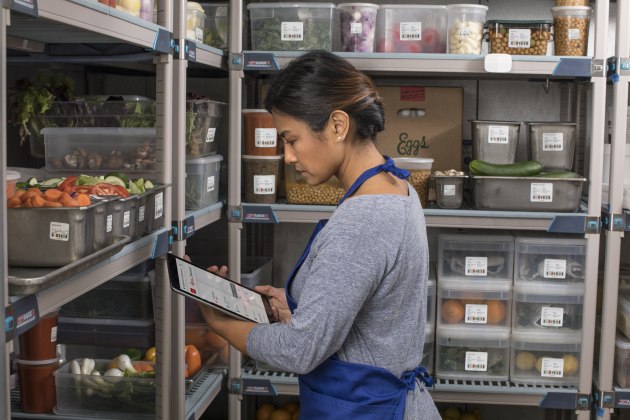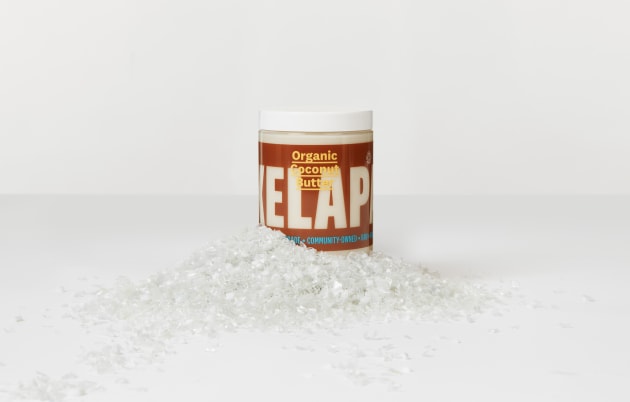Avery Dennison is delivering intelligent solutions to transform sustainability systems and reduce waste in the food industry. PKN looks at how the company is leveraging cutting-edge technology and sustainability-driven practices.
Supply chain waste is a pressing global issue. Often at the core of this is poor inventory management, leading to overproduction and overstocking across the supply chain. Supermarkets, aiming to prevent stockouts of popular items, frequently overstock, resulting in food spoiling before it’s sold. This overstocking is exacerbated by a disconnect between supermarket stock levels and actual consumer purchasing trends. At a household level, overbuying further contributes to food waste, as perishable items go uneaten and expire.

Despite growing consumer demands for sustainability, businesses allocate only 4.4% of technology budgets to improving supply chain sustainability. Among the biggest contributors is the food industry, costing the Australian economy over $36 billion annually and contributing significantly to environmental degradation. Food waste is a pressing issue, with nearly a third of all food produced for human consumption going uneaten. Australia currently creates more than 7.6 million tonnes of food waste each year – enough to fill the Melbourne Cricket Grounds nine times (source: Foodbank Australia).
This isn’t just an economic burden – it’s an environmental catastrophe, contributing to greenhouse gas emissions, wasted resources like water and energy, and overflowing landfills. Addressing this problem is urgent, not just for the planet but for future generations. Avery Dennison, a leader in materials science and digital solutions, is stepping up to address the issue head-on. By leveraging cutting-edge technology and sustainability-driven practices, Avery Dennison is helping the food industry tackle these challenges with innovative solutions that could revolutionise the way the sector operates.
Transforming food inventory management
One of the core pillars of its approach is Intelligent Food Solutions, which is reshaping how businesses in the food supply chain manage their inventory. David Newman, general manager of Avery Dennison’s Identification Solutions division, says, “RFID technology is revolutionising the way the food industry operates, providing unparalleled visibility into supply chains.”

At the heart of this transformation are RFID (Radio Frequency Identification) tags, small but powerful tools that allow precise tracking of individual food items from production to sale. Grocery stores, quick-service restaurants, and other critical players in the food industry are now using these systems. Newman added, “This technology isn’t just about reducing food waste – it’s also enabling fresher products, more accurate stock management, and greater operational efficiency.”
These RFID tags are much more than just tracking tools – they’re an advanced way to manage food inventory. Each tag contains a microchip and antenna, seamlessly integrating with Avery Dennison’s connected cloud platform to deliver real-time insights.
“This technology provides businesses with levels of transparency and control that were previously unimaginable,” says Sophia Formoso, market development manager, Digital Solutions. “With these insights, companies can optimise their processes, reduce spoilage, and improve both their bottom line and customer satisfaction. The precise tracking of food items also helps businesses cut down significantly on overproduction, a leading cause of food waste.”
Sustainable packaging innovation
But Avery Dennison’s efforts go beyond improving inventory management. It is also a trailblazer in developing sustainable packaging solutions, which are vital in reducing waste and meeting the demand for eco-friendly alternatives. The company is actively integrating recycled materials into its products and designing packaging options that reduce or eliminate plastic use entirely. For instance, Avery Dennison has removed plastic from wine labels, creating sustainable yet visually striking options that align with consumer preferences. It has also introduced innovative solutions like AD CleanFlake technology, which enables easy label separation during the recycling process, improving the recyclability of PET containers. Additionally, their wash-off labels streamline the return process of glass bottles while biodegradable labels are designed to break down naturally, minimising environmental impact. These efforts not only satisfy customer expectations but also promote environmentally responsible practices across the industry, addressing sustainability challenges from start to finish.
Partnerships that drive change
Partnerships play a critical role in Avery Dennison’s strategy to reduce food waste. Collaborating with major grocery chains such as Kroger. They’ve introduced individual tagging for bakery items, greatly improving inventory accuracy and significantly reducing waste. In Australia, a pilot program is underway to apply RFID tagging to meat products, with promising early results. These successes highlight the potential for broader adoption across other food categories, showing how businesses can work together to create meaningful changes. Suppliers are also an essential part of value chain success, playing a critical role in sourcing sustainable ingredients, reducing waste, and improving production processes. These partnerships are not just about technology—they are about building ecosystems where collaboration drives innovation, sustainability, and impact.
Avery Dennison’s Intelligent Food Solutions address multiple facets of the food industry’s challenges, from reducing waste and improving operational efficiency to adopting sustainable practices and enhancing customer satisfaction. By combining advanced technology like RFID with eco-friendly packaging and strategic partnerships, Avery Dennison is setting new standards for what’s possible in the fight against food waste.
Inspiring industry change
In addition to their technological advancements, Avery Dennison is also inspiring a cultural shift in the industry. Their commitment to tackling food waste reflects a forward-thinking approach that doesn’t just address today’s problems but lays the groundwork for a more efficient, sustainable future. By helping businesses integrate smarter, greener practices, Avery Dennison is empowering the food industry to meet modern consumer needs while working towards a waste-free system.
A vision for the future
Ultimately, Avery Dennison’s vision goes beyond offering solutions – it’s about inspiring hope and creating opportunity for transformative change. The company’s leadership in technology, sustainability, and collaboration is equipping the food industry to navigate the challenges of today while building a better future for tomorrow. Through its innovative Intelligent Food Solutions, Avery Dennison is not just fighting food waste – it is redefining what a sustainable food system can look like.
This article was first published in the March-April 2025 print issue of PKN Packaging News, p14.







